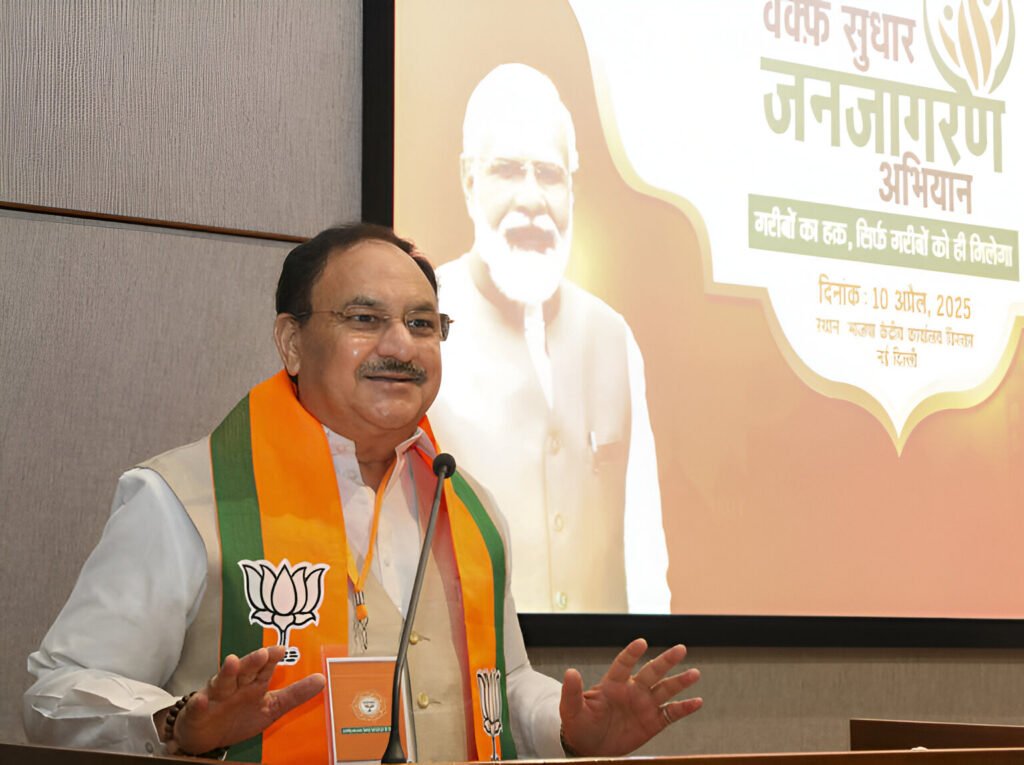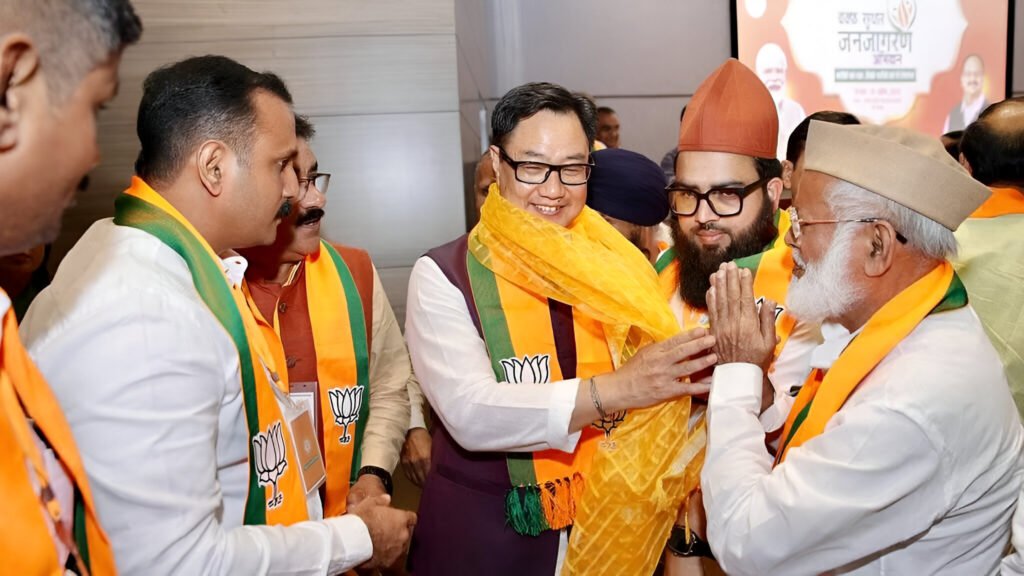
Recently, the Bharatiya Janata Party (BJP) has launched an all-India awareness campaign regarding the Waqf (Amendment) Act, 2025. This is done at a time when there are extensive debates and discussions regarding the effect of the amendments on the administration of Waqf properties in India. Let us know the important issues of this campaign and understand why it is necessary.
Waqf and Its Significance
What is Waqf?
Waqf is a religious trust in Islamic law, usually giving a building, land, or other immovable asset for religious or philanthropic purposes. These properties are being managed by Waqf Boards to ensure that they remain for the desired welfare of the community.
Significance in India
India possesses a gigantic amount of Waqf properties, and it is one of the largest property owners globally. These properties serve an essential function to help schools, mosques, and other social welfare schemes.
The Waqf (Amendment) Act, 2025: Key Highlights
Renaming and Reformation
The Act has also been renamed the Sustainable Waqf Management, Empowerment, Efficiency, and Development Act, 1995 (SWMED Act 1995). It aims to implement structural reforms for maximizing transparency and efficiency in Waqf asset management.
Inclusion and Representation
One of the major alterations is the mandatory inclusion of a minimum of two Muslim women on the Central Waqf Council and State Waqf Boards. Further, the act encourages greater participation from other Muslim factions as well as neutral non-Muslims so that the process of decision-making will be representative of different opinions.
Property Management and Dispute Resolution
The act authorizes the central government to enact rules regarding Waqf registration, audit, and accounts. The act also has a provision for appeal so that the tribunal’s orders may be appealed before the High Court within 90 days.

BJP’s Awareness Campaign: Objectives and Strategies
Dispelling Misconceptions and Disinformation
BJP’s campaign will aim to enlighten individuals, particularly Muslims, regarding the true provisions of the revised Act. The BJP wishes to combat any misinformation and get people to realize that the amendments are being done to rationalize the management of Waqf properties and not to dilute them.
Community Engagement
The campaign involves house-to-house visits, public gatherings, and the use of digital tools like QR codes to disseminate information. For example, in Delhi, BJP volunteers are going from door to door in Muslim areas to clarify the provisions of the act and to alleviate fears.
Opposition and Concerns
Opposition Parties’ Criticism
Certain opposition parties, such as the Congress and All India Majlis-e-Ittehad-ul-Muslimeen (AIMIM), are apprehensive of the amendments. According to the opposition, the amendments would pave the way for a possible intrusion into the autonomy of Waqf Boards and into minority rights.
Legal Issues
The Act has faced legal challenges, and writ petitions have been moved in the Supreme Court questioning its constitutional legitimacy. Opposition forces claim that some of the provisions contained in the act would allow undue intrusion into religious matters and property rights.
Public Response and Protests
Nationwide Marches
Implementation of the modified act has invited protests in certain regions of the country. The Muslim community in urban areas like Bhopal and Kolkata has aligned with leaders of political parties and registered their protests against the modification.
Feedback Mechanisms
To gather public views, initiatives like scanning QR codes after Friday prayers have been launched so that individuals can leave their comments on the amendments and submit responses to the concerned authorities.
Conclusion
The national awareness campaign by the BJP on the Waqf (Amendment) Act, 2025, points towards the necessity of free communication between the government and citizens. Since the act aims to bring reforms in the management of Waqf properties, it is necessary that all the stakeholders are heard so that the reforms are for the welfare of all without compromising the rights and sentiments of the concerned communities.







